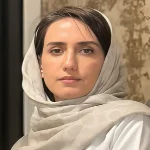
Dr Mahsa Haghighatzadeh is a distinguished neurologist specializing in movement disorders, with her medical training and sub‐specialty fellowship conducted in […]
In the evolving world of neurology, few fields are advancing as rapidly as movement disorders. These conditions—such as Parkinson’s disease, essential tremor, dystonia, Tourette syndrome, and ataxia—require not only medical expertise but also exceptional diagnostic precision and empathy. For neurologists who wish to dedicate their careers to this specialty, pursuing a Movement Disorders Fellowship provides the highest level of training and clinical mastery.
A Movement Disorders Fellowship is a post-residency subspecialty program designed for neurologists who want to gain advanced expertise in diagnosing and managing disorders that affect voluntary and involuntary movements. Unlike general neurology residency, this fellowship focuses deeply on the pathophysiology, clinical features, and treatment innovations related to movement abnormalities.
Fellows learn to evaluate complex cases of Parkinson’s disease, Huntington’s disease, dystonia, myoclonus, tics, and gait disorders, among others. The training also includes extensive exposure to neurophysiology, neuroimaging, neurogenetics, and neuropharmacology, equipping graduates to handle both common and rare conditions with confidence.
During the fellowship, physicians master a combination of clinical, procedural, and research skills. Some of the major components include:
Comprehensive patient assessment: Fellows develop expertise in distinguishing between different types of tremors and movement abnormalities using detailed neurological examinations and diagnostic tests.
Botulinum toxin therapy: Advanced training in botulinum toxin injections for dystonia, hemifacial spasm, blepharospasm, and migraine management.
Deep Brain Stimulation (DBS): Learning to select appropriate candidates, perform intraoperative mapping, and adjust DBS settings for optimal outcomes in Parkinson’s disease and dystonia.
Apomorphine and infusion therapies: Training on advanced pharmacological management, including continuous drug delivery systems for Parkinson’s disease.
Research and innovation: Many programs encourage participation in clinical trials and research projects exploring new treatment modalities for movement disorders.
Movement disorders often present with subtle signs that may overlap with other neurological or systemic conditions. A specialized fellowship allows physicians to recognize nuanced differences, interpret advanced diagnostic findings, and design individualized treatment plans. This expertise significantly improves patients’ quality of life, especially for those living with chronic and progressive neurological diseases.
Moreover, fellowship-trained neurologists contribute to advancing global research and improving access to cutting-edge therapies in their regions. In countries like Iran, where movement disorder fellowships have recently been established, physicians such as Dr. Mahsa Haghighatzadeh represent the first generation of specialists trained to bring international standards of care to local patients.
Upon completing the fellowship, graduates may work in academic hospitals, movement disorder clinics, or research institutions, often collaborating in multidisciplinary teams that include neurosurgeons, physical therapists, and neuropsychologists. Their skills are highly sought after, particularly as the global population ages and the prevalence of neurodegenerative diseases rises.
In summary, a Movement Disorders Fellowship represents a vital step for neurologists committed to mastering the science and art of movement control. Through this advanced training, specialists not only enhance their clinical capabilities but also make a profound difference in the lives of patients affected by some of the most challenging neurological conditions.